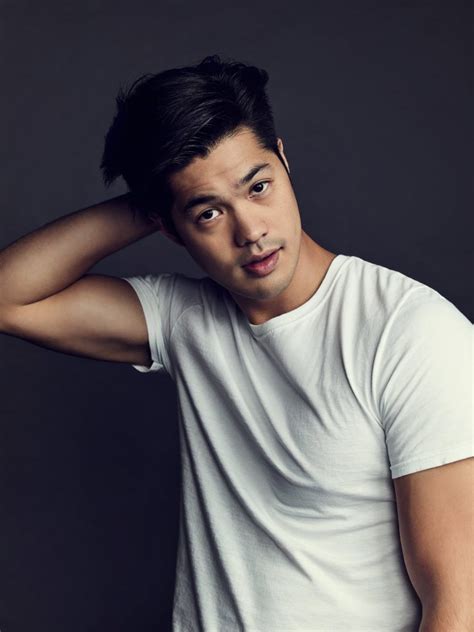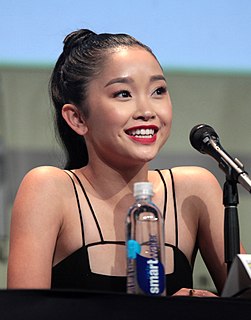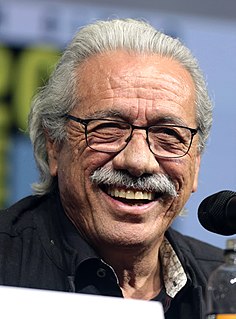A Quote by Grace Lee Boggs
When I was growing up, Asians were so few and far between as to be almost invisible. And so the idea of an Asian American movement or an Asian American thrust in this country was unthinkable.
Related Quotes
As a community, we're fighting for Asians to play Asian roles. And then there's the other battle, which is Asian Americans playing roles that aren't written for Asians, and I think that's something that completely should happen; Why can't an Asian American male just play a leading cop figure... or the Matt Damon roles?
I wish reporters were more in tune to the difference between the Asian experience and the Asian-American experience. I think often they lump the two together and think that when I talk about Asian-American narratives that they can cite 'Crouching Tiger, Hidden Dragon' or 'Mulan' as proof of concept when it's a different experience.
I always feel like people misunderstand the difference between an Asian story and an Asian-American story. That's completely different, too. I have friends who grew up in Asia, and our experiences are so different. Even though we might look the same, I feel like being Asian and then being Asian-American is completely different.
Does people not asking me about Asian American literature mean they don't see it as its own literary tradition? I certainly believe in it as its own literary tradition, because your race plays a great factor in how you are seen by the world, and how you see the world; the fact that I'm an Asian American isn't incidental to who I am as a writer. Where it becomes difficult is defining what, if anything identifiable at all, makes an Asian American book an Asian American book, other than the fact of its creator being Asian. And I'd argue that there is nothing identifiable beyond that.
I wish people wouldn't just see me as the Asian girl who beats everyone up, or the Asian girl with no emotion. People see Julia Roberts or Sandra Bullock in a romantic comedy, but not me. You add raceto it, and it became, 'Well, she's too Asian', or, ‘She's too American’. I kind of got pushed out of both categories. It's a very strange place to be. You're not Asian enough and then you're not American enough, so it gets really frustrating.
There's a misconception that I can't relate to the quote-unquote 'Asian-American experience' because I didn't grow up with an Asian mom and dad. And that's just not true. I am Asian American, and so playing a girl who is half Korean, half white, but her white dad tried really hard to connect with her mom's heritage - that's very familiar to me.
It's very difficult to be asking other people for opportunities. It is much more empowering to be creating opportunities, to be the one who is saying, 'Look, I'm going to take this from the ground up and create a story that is meaningful to me as an Asian American and cast it with Asian Americans and have Asian Americans writing it.'



































